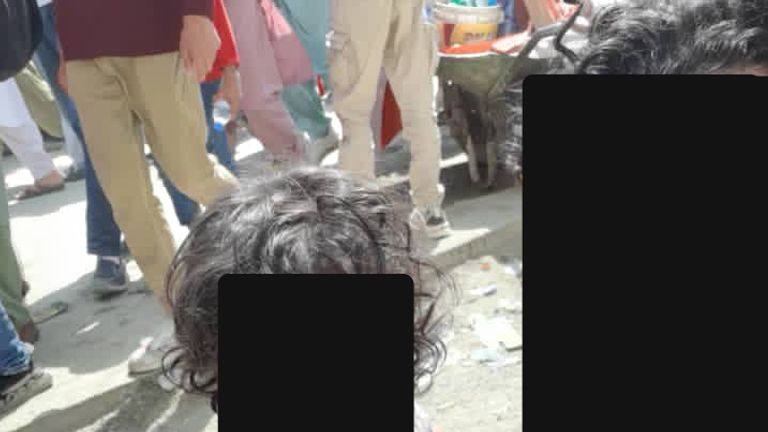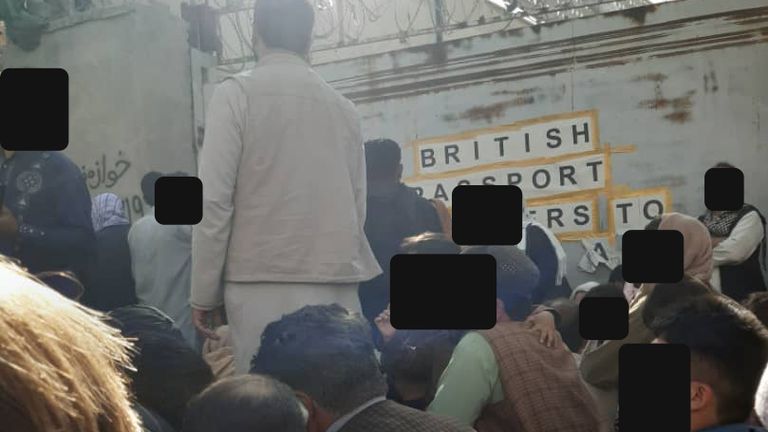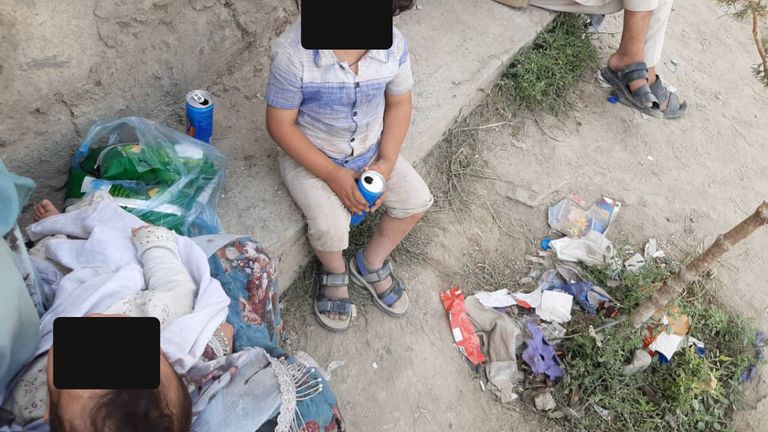Salvation for the last Afghan interpreter to be evacuated to the UK came at night when British soldiers bundled him and his family – including a three-month-old baby – over a barbed wire fence and into Kabul’s Hamid Karzai International Airport.
The man, “S”, who had spent six days waiting in the dust and heat outside the compound with his wife, tiny daughter and three-year-old son, had all but given up hope of catching an evacuation flight out of Afghanistan.
“I am in hell,” he told me on Thursday morning, while stuck in wretched limbo.
S spent three years as an interpreter for British forces in the south of the country, only stopping after the vehicle he had been travelling in was hit by a roadside bomb.
Even though this was in 2011, he said he was still being hunted by the Taliban, who view anyone who worked with British troops as a traitor.
He had applied to a UK government relocation scheme for permission to move to the UK, and had been accepted.
But the birth of his daughter three months earlier had slowed his plans to leave.
When the Afghan government collapsed and the Taliban took over, he knew he had to act.
Despite the risk to his life and to the lives of his family members, he travelled to Kabul with his papers, proving his eligibility for help.
They waited outside the Baron Hotel by the airport – the main processing point for people wanting to evacuate to the UK.
But no one called them forward.
At one point, his wife fainted in the heat and he feared for the life of his baby girl amid such large, unpredictable crowds.
On Wednesday night the UK warned of an imminent terrorist threat to the airport and urged people to stay away.
But S remained where he was. He said he had no choice. In his mind, the Taliban was just as much of a threat to him as Islamic State.
The following day, the terrorist threat became a reality as a suicide bomber ripped through the crowd, killing dozens of people.
S and his family survived the blast unharmed but they were forced to move away.
On Friday, exhausted, scared and in hiding, S kept messaging a number for a call centre, set up by the UK and manned by Afghan interpreters.
He asked for help, but received no response.
Finally in the middle of the night, S was woken by his mobile phone ringing.
A voice on the other end told him to catch a taxi with his family to the airport because he was going to be allowed on a flight.
He and his wife, with their children, sped to one end of the airport.
It was around 1am on Saturday morning.
They left the taxi and walked for about 20 minutes towards the entrance.
The person who had called him – an Afghan interpreter still working with the British military – gave directions about where he and his family should go.
But once at the gate, there was still a huge crowd. They could not pass through.
The phone rang again, the person on the other end advised him to move away from the crowd and then signal through the barbed wire surrounding the airfield with a light.
Suddenly British soldiers and the interpreter he had been speaking to appeared.
They hauled S, his wife, baby, and young boy over the wire to safety.
“I finally made it to the airport,” S said in a message. “Everyone is okay.”
Source: Read Full Article








